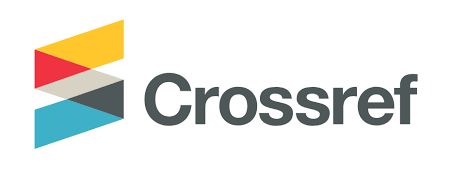SOSIALISASI PENCEGAHAN DAN PENANGGULANGAN TBC PADA PEKERJA HOME INDUSTRI BATIK DI KALURAHAN WIJIREJO, KAPANEWON PANDAK, KABUPATEN BANTUL, DAERAH ISTIMEWA YOGYAKARTA
Keywords:
Socialization, Prevention, Empowerment, TuberculosisAbstract
TB plays an important role in cases of death and morbidity due to respiratory tract infections. Global TB Report 2022, TB cases in Indonesia are in 2nd place in the world after India. The estimated number of cases recorded reached 969 thousand with a case notification figure of 443,235. Based on the estimated number of cases, only 45.7% have been found and treated. This means that 54.2% of TB cases are still undetected and pose a risk of infecting other people. TB can attack anyone, including workers who have a fairly high level of vulnerability. Based on age group, the age range most affected by TB is 15-54 years or the productive age group. The characteristics of the productive age group are high mobility and gradual exposure to TB bacteria which may occur without being noticed. TB cases in Indonesia in 2022 will be recorded at 717,941 cases. This number jumped 61.98 percent from the previous year which was 443,235 cases
Downloads
References
Anakwe, Uzoamaka P, James C Hall, and Susan M. Schor, (2000) “Knowledge–Related Skill and Effective Management”, International Journal of Man-power, 21 (77): 566–579, @ MCB University Press.
Adhikari, Krishna Prasad. (2009). Social Capital and its “Downside”; The Impact on Sustainability of Induced Community-Based Organization Nepal. World Development Volume 38 No (2): pp.184-194.
Bethell, C. D., Solloway, M. R., Guinosso, S., Hassink, S., Srivastav,, Ford, D., & Simpson, L. A. (2017). Prioritizing possibilities for child and family health: An agenda to address adverse childhood experiences and foster the social and emotional roots of well-being in pediatrics. Academic Pediatrics, 17(7 Suppl.), S36-S50. doi:10.1016/j.acap.2017.06.002
Brower, Michael J. (1995) Empowering Teams: What, Why and How Empowering in Organization. MCB University Press. 2: 12-23.
Byars dan Rue. (1997) Human resources and personnel management. Richard D Iriwin, Inc. Illinois.
Brower, Michael J. (1995) Empowering Teams: What, Why and How Empowering in Organization. MCB University Press. 2: 12-23.
Centers for Disease Control and Prevention. (2018). Social determinants of health: Know what affects health. Retrieved from https://www.cdc.gov/socialdeterminants/
Centers for Disease Control and Prevention. (2019). Essentials for childhood: Creating safe, stable, nurturing relationships and environments. Retrieved from https://www.cdc.gov/violencepreven- tion/childabuseandneglect/essentials.html doi:10.1007/s40653-018-0217-9
Crouch, E., Radcliff, E., Strompolis, M., & Srivastav, A. (2019). Safe, stable, and nurtured: Protective factors against poor physical and mental health outcomes following exposure to adverse childhood experiences (ACEs). Journal of Child & Adolescent Trauma, 12, 165-173. Davis,T,R,V.,and Luthans, F. (1980) "Asocial Learning Approachto Organizational Behavior", Academy of Management Review. 5: 281-290
Eriksson, U. (2012). Healt Outcomes among Swedish Children: The Role of Social Capital in the Family, School and Neighbourhood. BMC Public Health, 12:628. “http://www.biomedcontrol.com/471248/19628. Diakses tanggal 12 Juni 2022.”
Hasbullah, J. (2006). Sosial Capital: Menuju Keunggulan Budaya Manusia Indonesia. Jakarta: MR-United Press.
Hughes, Mathew and Robert K. Perrons. (2010). Shaping and re-shaping social capital
Ismail, A., Pramono, E., Astuti, Y. W., Wahyu, F., & Murti, B. (2023). Promosi Kesehatan dan Perilaku Pencegahan Penyebaran Tuberkulosis di Desa Tunggul Sragen. Jurnal Pengabdian Komunitas, 02(02), 108–113. https://jurnalpengabdiankomunitas.com/index.php/pengabmas/article/view/54/42
Kasjono. HS. (2016). Promosi Kesehatan, Pemberdayaan Masyarakat, dan Modal Sosial, Nuhamedika, Yogyakarta.
Substance Abuse and Mental Health Services Administration. (2017). Spotlights on six trauma-informed resilient communities. Retrieved from https://store.samhsa.gov/system/files/sma17-5014. pdf
Ismail, A., Pramono, E., Astuti, Y. W., Wahyu, F., & Murti, B. (2023). Promosi Kesehatan dan Perilaku Pencegahan Penyebaran Tuberkulosis di Desa Tunggul Sragen. Jurnal Pengabdian Komunitas, 02(02), 108–113. https://jurnalpengabdiankomunitas.com/index.php/pengabmas/article/view/54/42
Timory, Y., & Modjo, R. (2023). Analisis Stigma Pada Penderita TBC di Tempat Kerja. Jurnal Kesehatan Tambusai, 4(2), 2677–2683. https://journal.universitaspahlawan.ac.id/index.php/jkt/article/view/16114/12548
Thobias, E., Tungka, A. K., & Rogahang, J. J. (2013). Pengaruh Modal Sosial Terhadap Perilaku Kewirausahaan (Suatu studi pada pelaku usaha mikro kecil menengah di Kecamatan Kabaruan Kabupaten Kepulauan Talaud). Acta Diurna, (April), 1–23.
Downloads
Published
Issue
Section
License
Copyright (c) 2024 EJOIN : Jurnal Pengabdian Masyarakat

This work is licensed under a Creative Commons Attribution-ShareAlike 4.0 International License.









